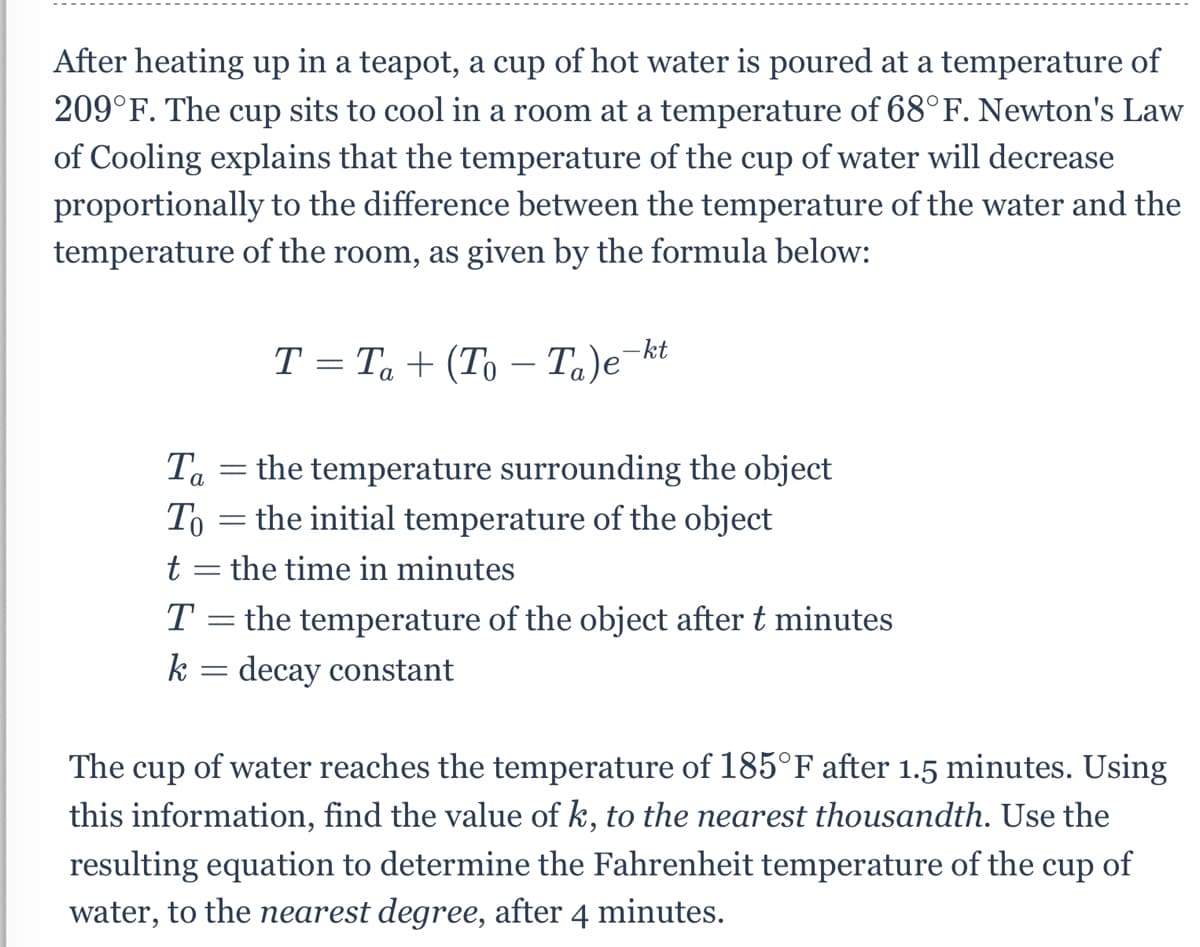After heating up in a teapot, a cup of hot water is poured at a temperature of 209°F. The cup sits to cool in a room at a temperature of 68°F. Newton's Law of Cooling explains that the temperature of the cup of water will decrease proportionally to the difference between the temperature of the water and the temperature of the room, as given by the formula below: -kt T = Ta + (To – Ta)e Ta the temperature surrounding the object To = the initial temperature of the object t = the time in minutes T = the temperature of the object after t minutes k = decay constant The cup of water reaches the temperature of 185°F after 1.5 minutes. Using this information, find the value of k, to the nearest thousandth. Use the resulting equation to determine the Fahrenheit temperature of the cup of water, to the nearest degree, after 4 minutes.
Thermochemistry
Thermochemistry can be considered as a branch of thermodynamics that deals with the connections between warmth, work, and various types of energy, formed because of different synthetic and actual cycles. Thermochemistry describes the energy changes that occur as a result of reactions or chemical changes in a substance.
Exergonic Reaction
The term exergonic is derived from the Greek word in which ‘ergon’ means work and exergonic means ‘work outside’. Exergonic reactions releases work energy. Exergonic reactions are different from exothermic reactions, the one that releases only heat energy during the course of the reaction. So, exothermic reaction is one type of exergonic reaction. Exergonic reaction releases work energy in different forms like heat, light or sound. For example, a glow stick releases light making that an exergonic reaction and not an exothermic reaction since no heat is released. Even endothermic reactions at very high temperature are exergonic.

Trending now
This is a popular solution!
Step by step
Solved in 2 steps with 1 images









